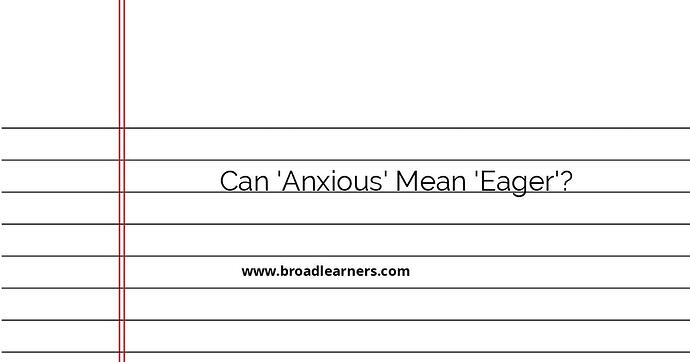In the English language, words can sometimes have nuanced meanings that may not be immediately apparent. One such word is anxious. This word is commonly associated with feelings of worry or unease, but it also has a lesser-known meaning that conveys eagerness or excitement. This duality can be confusing, so let's explore both meanings in detail, complete with examples, to understand how anxious can mean both 'worried' and 'eager'.
- 1. Anxious - Meaning 'Worried'
-
The primary meaning of anxious is to describe a mental state characterized by feelings of worry, nervousness, or fear about something with an uncertain outcome. This is the most traditional and widely understood interpretation of the term.
Example:
Maria felt anxious about the upcoming exam, fearing she might not pass.
In this example, the word anxious is used to describe Maria's feeling of worry and nervousness about the outcome of her exam.
- 2. Anxious - Meaning 'Eager'
-
Interestingly, anxious can also be used to convey a sense of eagerness or excitement. This use is less common, and it's important to understand the context in which it's applied to avoid ambiguity.
Example:
Tom was anxious to meet his favorite author at the book signing event.
Here, the word anxious is used to express Tom's eagerness and anticipation about meeting the author rather than any sense of worry or fear.
Given the dual meanings, it's important to pay attention to the context and sentence structure to accurately interpret the intended message. If the word is used in a scenario involving potential negative outcomes or fears, it is likely being used in the 'worried' sense. Conversely, if the context is about anticipation or looking forward to something positive, it might well mean 'eager'.
In conclusion, while anxious traditionally conveys feelings of worry or nervousness, it can also mean 'eager' in some contexts. Understanding these distinctions can enrich your comprehension and use of the English language, allowing for more precise communication.
Did I miss anything? Respond below
